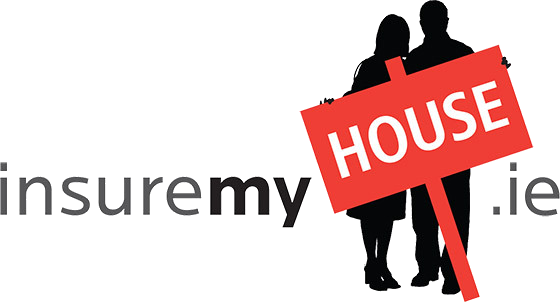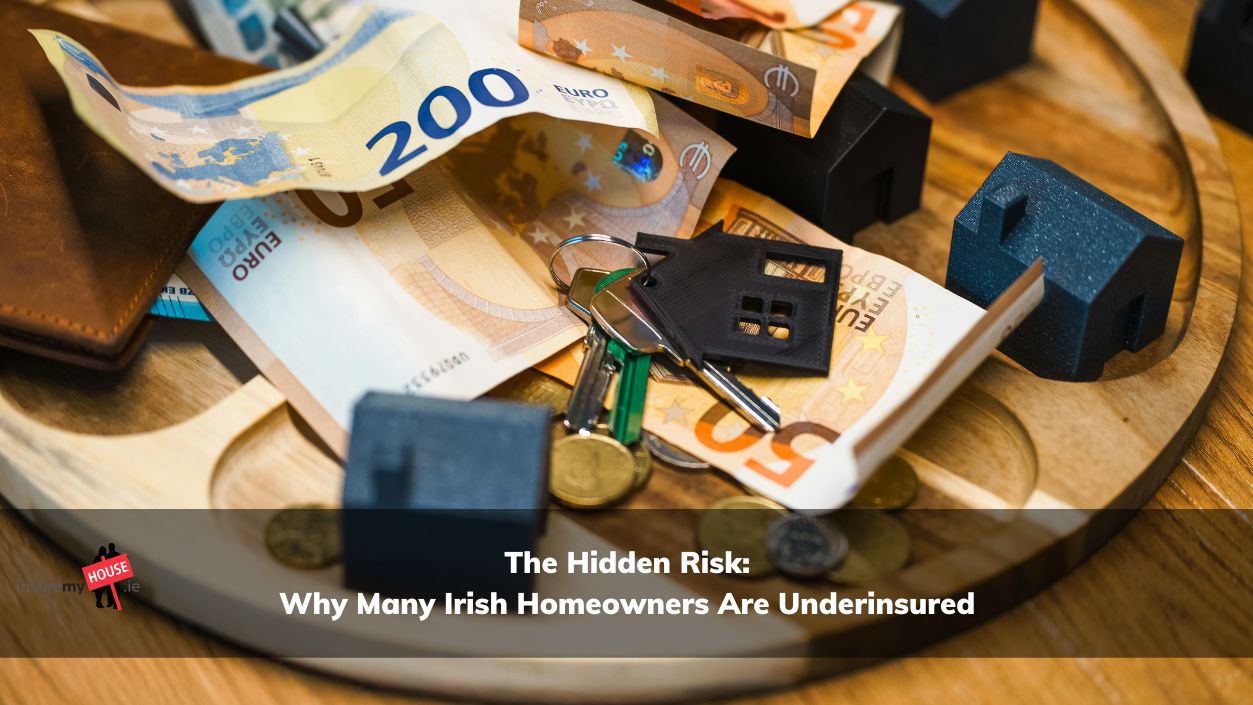Tuesday, 19 December 2023
Buying a House in Ireland: A Step-By-Step Guide
Navigate the intricacies of buying a house in Ireland with our step-by-step guide. Explore steps, hidden costs, schemes, and expert tips with InsureMyHouse.ie!
Buying a house in Ireland is one the biggest decisions me make in our lifetime and can be a lengthy and complicated process. As leading providers of home insurance in Ireland, we understand the significance of this investment. Whether you are a first-time buyer or looking to upgrade or downsize, there are many factors to consider before you make an offer on your dream home. In this blog, we will provide you with a guide to buying a house in Ireland, covering the main steps, hidden costs, and schemes involved in the process.

Steps to Buying a House in Ireland
Step 1: Decide on your budget and mortgage
The first step to the buying-a-house process in Ireland is to decide how much you can afford to spend and how much you can borrow. Mortgage lending rules changed in 2022. That means, whether you’re a first-time buyer or you’ve owned a property before, you’ll need to have a deposit of 10% of the purchase price. For those who are buying a property to rent out, a deposit of 30% is required. In addition to this, you must factor in other costs such as stamp duty, legal fees, valuation fees, and survey fees.
You can use online calculators to estimate how much you can borrow and how much your repayments will be based on your income, savings, and expenses. First-time buyers and ‘fresh-start’ applicants can now borrow up to 4 times their gross annual income, as opposed to the 3.5 previously allowed. Fresh-start applicants are those who have undergone divorce, separation, bankruptcy, or insolvency. It is possible to borrow up to 4.5 times your salary, but this is known as an ‘exception’. Lenders are permitted to assign no more than 15% of mortgages this allowance. This is only available to first-time buyers.
To apply for a mortgage, you’ll need to provide proof of your income, identity, repayment capacity and credit history. It might be a good idea to start with getting mortgage approval in principle, which is a letter from a lender stating how much they are willing to lend you, subject to certain conditions. A mortgage approval in principle is valid for six months and can help you negotiate with sellers and estate agents.
Step 2: Find a suitable property and make an offer
The next step to buying a house in Ireland is to find a property that meets your needs and preferences. You can search online, visit estate agents, or attend property fairs and auctions to find potential properties. You can also use online tools to compare prices, locations, and features of different properties.
Once you find a property that you like, you can make an offer to the seller or their agent. The offer can be verbal or written, and it is not legally binding until you sign a contract. You can make an offer below the asking price but be prepared to negotiate and face competition from other buyers. You can also withdraw or change your offer at any time before signing a contract.

Step 3: Arrange a survey and valuation
After you make an offer and it’s accepted by the seller, you’ll need to arrange a survey and a valuation of the property:
a) A survey: This is a detailed inspection of the property by a qualified professional, who will check for any defects, damages, or issues that may affect the value or safety of the property. A survey can help you avoid any unpleasant surprises or costly repairs in the future, and it can also give you leverage to renegotiate the price or terms of the sale.
b) A valuation: This is a report that estimates the current market value of the property, based on its size, condition, location, and other factors. A valuation is required by your lender to confirm that the property is worth the amount that you’re borrowing, and it may differ from the survey or the agreed price. You will have to pay for both the survey and the valuation and can choose your own surveyor and valuer or use the ones recommended by your lender or agent.
Step 4: Hire a solicitor and sign the contract
The final step to the buying-a-house process in Ireland is to hire a solicitor and sign the contract. A legal professional will handle the legal aspects of the sale. This includes checking the title deeds, preparing the contract, transferring the funds, and registering the property in your name. You can choose your own solicitor or use the one recommended by your lender or agent, but make sure to compare their fees and services before hiring them.
The contract is a legally binding document that outlines the terms and conditions of the sale. It will include the price, the closing date, the deposit, and any contingencies. You will sign the contract in two stages. First, you’ll sign a contract for sale, which is a provisional agreement that can still be cancelled by either party. Second, you’ll sign a deed of conveyance, which is a final agreement that transfers the ownership of the property to you. You will also have to pay the balance of the purchase price, the stamp duty, and the legal fees at this stage.

Buying a House in Ireland: Hidden Costs
Buying a house isn’t only about paying the purchase price. There are some additional fees you may not be aware of that must also be considered when refining your budget. Some of these include:
a) Stamp Duty: This is a government tax, based on the property's value. This rate is set a 1% of the purchase price of the house (if less than €1 million) For example, on a €300,000 property, expect to pay an additional €3,000 for the stamp duty.
b) Legal Fees: Solicitor fees cover vital tasks like property conveyancing and ensuring all legal aspects are in order. Some solicitors charge a flat fee, while others may charge a percentage of the property price (approx. 1-2%). You should budget between €1,500 to €3,000.
c) Valuation Fees: A professional valuation ensures you pay a fair price. Prices can vary but plan for €150 to €250.
d) Survey Fees: A structural or condition survey safeguards you from potential issues. Costs typically range from €500 to €1,000.

e) Mortgage Protection: Lenders often require insurance to cover the mortgage in case of unforeseen events. Costs depend on several factors but might range from €20 to €60 per month.
f) Home Insurance: Essential for protecting your investment and covers your property and its contents against damage, theft, or liability. Costs can vary based on coverage, but you can anticipate around €300 to €500 annually. The average cost of home insurance in Ireland is around €430 per year.
g) Maintenance and Repair Costs: Depending on whether you buy a new build or an older home, these costs can vary significantly. As a general rule of thumb, it’s a good idea to set aside 1% to 3% of your home's value annually for ongoing maintenance. Common maintenance covers routine tasks like painting, landscaping, and crucial aspects like ensuring proper ventilation systems for a healthy living environment.
Tip: Check out our tips and tricks for home air vent cleaning!
h) Property Tax: This is an annual tax based on your property’s value. It’s typically a few hundred euros. Check Citizens Information for the current rates.
Unlike Ireland, where buyers must account for stamp duty and local property tax, international markets such as properties in Dubai often attract attention due to different tax frameworks and ownership structures.

Buying a house in Ireland in 2026
Buying a house in Ireland in 2026 may be different from previous years, as the market conditions, government policies, and consumer preferences may change over time. For example, the pandemic has affected the supply and demand of housing, the availability and affordability of mortgages, and the preferences of buyers and sellers.
Some of the trends that may influence buying a house in Ireland in 2026 are:
· The increase in remote working and online shopping may reduce the demand for urban properties and increase the demand for rural or suburban properties with more space and amenities.
· The introduction of new schemes and incentives, such as the Affordable Housing Act, and the Help to Buy scheme, which may increase the supply and affordability of housing for low- and middle-income buyers.
· The impact of Brexit, climate change, and digital transformation, which may affect economic growth, environmental sustainability, and the technological innovation of the housing sector. Therefore, if you are planning to buy a house in Ireland in 2024, you should keep an eye on the latest developments and trends in the housing market and be flexible and adaptable to the changing circumstances.
Navigate these costs wisely to ensure your journey to homeownership is not marred by unexpected financial hurdles.

Schemes Available When Buying a House in Ireland
To help you with buying a house in Ireland, there are some schemes and supports that you can avail of, such as:
1. The Help to Buy scheme: Tailored for first-time buyers of newly built homes. It offers a tax refund, facilitating a smoother entry into the property market.
2. Local Authority Home Loan: Administered by local authorities, this government-backed mortgage provides financial assistance to eligible homebuyers.
3. First Home Scheme: A national initiative supporting first-time buyers and other eligible applicants in purchasing or building their initial homes.
4. The Mortgage to Rent scheme, which is a scheme that allows eligible homeowners who are at risk of losing their property to switch to renting it from a housing association.
5. Local Authority Affordable Purchase Scheme: Designed for those with moderate incomes, it facilitates buying homes at reduced prices, with the local authority taking a stake in the property.
Buying a house in Ireland is a complex and challenging process that involves many steps, costs, and schemes. However, it is also a rewarding and fulfilling experience that can provide you with a place to call your own and a valuable investment for the future. If you’re considering buying a house in Ireland, follow this guide and seek professional advice and assistance from experts.
When it’s time to shop for an affordable and reliable home insurance quote, visit InsureMyHouse.ie. We offer comprehensive and competitive home insurance policies that suit your needs and budget. We also provide expert guidance and support throughout the process! Don't hesitate to contact us and let us help you protect your home and your peace of mind.
If you're in the market for other types of insurances too, head over to our partner companies: Insuremyvan.ie are the first van insurance brokers in Ireland and Coverinaclick.ie can really bring down the price for car insurance premiums for young drivers.






